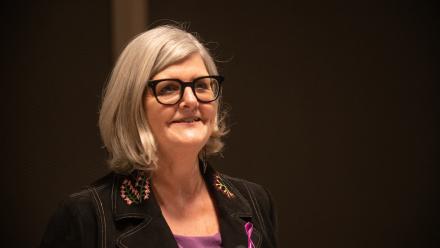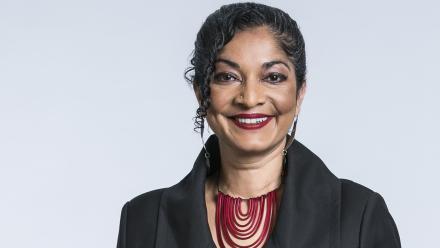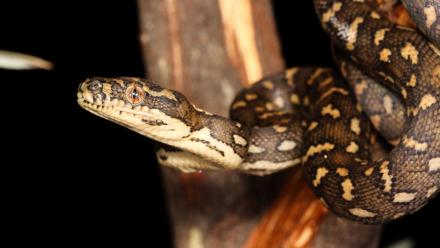A universe of opportunity
I knew from about the age of nine that I wanted to become an astronomer and, in my second year of university, I started making my dream a reality.
I had transferred to the Australian National University (ANU) from the University of Melbourne to continue my BSc (Hons) degree, majoring in physics and mathematics. Mount Stromlo Observatory (MSO) was then part of the ANU Institute for Advanced Studies. The director of the Observatory, Professor Bart Bok, was one of the great figures of world astronomy. So, somewhat precociously as a mere undergraduate, I made an appointment to see him.
I asked Professor Bok for his guidance on the best path to pursuing a career in astronomy. He advised that I was already on the right track with my undergraduate studies and invited me to attend the weekly MSO seminars. The first one I attended was a presentation by a young CSIRO radio astronomer, Dr Don Mathewson. Don was later to become Director of the Observatory, and our paths were to cross several times.
When I had completed my honours degree in 1967, I applied (successfully) for a summer vacation scholarship at MSO. As fate would have it, my supervisor was Don Mathewson, by that time one of the astronomers at Mount Stromlo. I worked for several months as his research assistant. Don was a key influence on my development as a scientist.
However, because PhD scholarships were then in short supply at MSO, rather than continuing in astronomy, I went on to postgraduate studies in Upper Atmosphere Physics in Canada. It was towards the end of the Vietnam War and jobs in physics were scarce, I didn't fancy a career teaching in a community college in the wilds of western North America! So I joined the Australian Public Service (APS), where I worked for over 20 years. I discovered a policy area in the public service is a very different environment than academia
In the late 1980s I took over managing an international science collaboration grants program, where I dealt with scientists from many disciplines. Prominent among these were astronomers, including from Mount Stromlo. So I had regular dealings with several of the MSO astronomers, including Professors Don Mathewson and Mike Dopita. I later persuaded Don to sit on the science collaboration grants committee.
A decade or so later, I had retired from both the APS and pondered what to do next. I had not completed a PhD and, with the encouragement of my wife, I sought advice on applying to undertake my PhD at Mount Stromlo. I had been working with Professor Trevor Lamb, a Federation Fellow at the John Curtin School of Medical Research (itself a curious tale) so I asked him, Mike Dopita and Don Mathewson about the wisdom of my plan. All encouraged me to apply for admission to the PhD and offered to act as referees.
When I contacted Don to ask if he would be prepared to act as a referee for me, he said that he would be delighted, adding: 'You're one of the best PhD students I've ever come across, even if you haven't done your PhD yet'. I did not expect to hear such kind words from a man I admire.
I spoke at length with Mike Dopita, who I had known through the science collaboration program. He too, enthusiastically offered to act as a referee for my application.
My application for admission to study for the PhD was successful and after talking with several of the Mount Stromlo astronomers, I decided to accept Mike's offer to act as my thesis supervisor, with Professor Helmut Jerjen, a galaxy expert, as co-supervisor. I can't imagine having better thesis supervisors.
I was also the only student Mike had supervised who was older than him - by six months. Mike was a Federation Fellow, a marvellous scientist with incredible scientific intuition, and a great mentor. He had been instrumental in launching many talented astronomers on their careers. We got on incredibly well, as we also connected over superannuation funds and the stock market - it was a great pleasure to talk about these things together, and we shared much in common.
Many of the most influential people I have worked with were PhD students of Mike's too. He influenced many people's lives for the better, including Professor Brian P. Schmidt, ANU Vice-Chancellor and President. Mike's death a few years ago was a great loss for me personally, and for his many colleagues and friends.
My message to ANU students today, particularly those who may be considering a career in research, is to follow your dreams and find a mentor like Mike or Don. Someone who is a capable research scientist and who excels in the area you are interested in. Take your time and talk to people to find out what research excites you. Find someone that you respect, feel you can talk to, and who has time enough to talk to you.
All these great scientists who took the time to mentor me, helped shape my life. Since I graduated with my PhD, I have been working as a Post-doctoral Research Fellow at the Research School of Astronomy and Astrophysics (Mount Stromlo), with Professor Lisa Kewley (now Head of the Centre for Astrophysics at Harvard University), and Professor Ralph Sutherland, two of Mike Dopita's PhD students from a decade or two ago and also outstanding scientists.
Share a story of your time here. It can be a moment, or an entire career.


